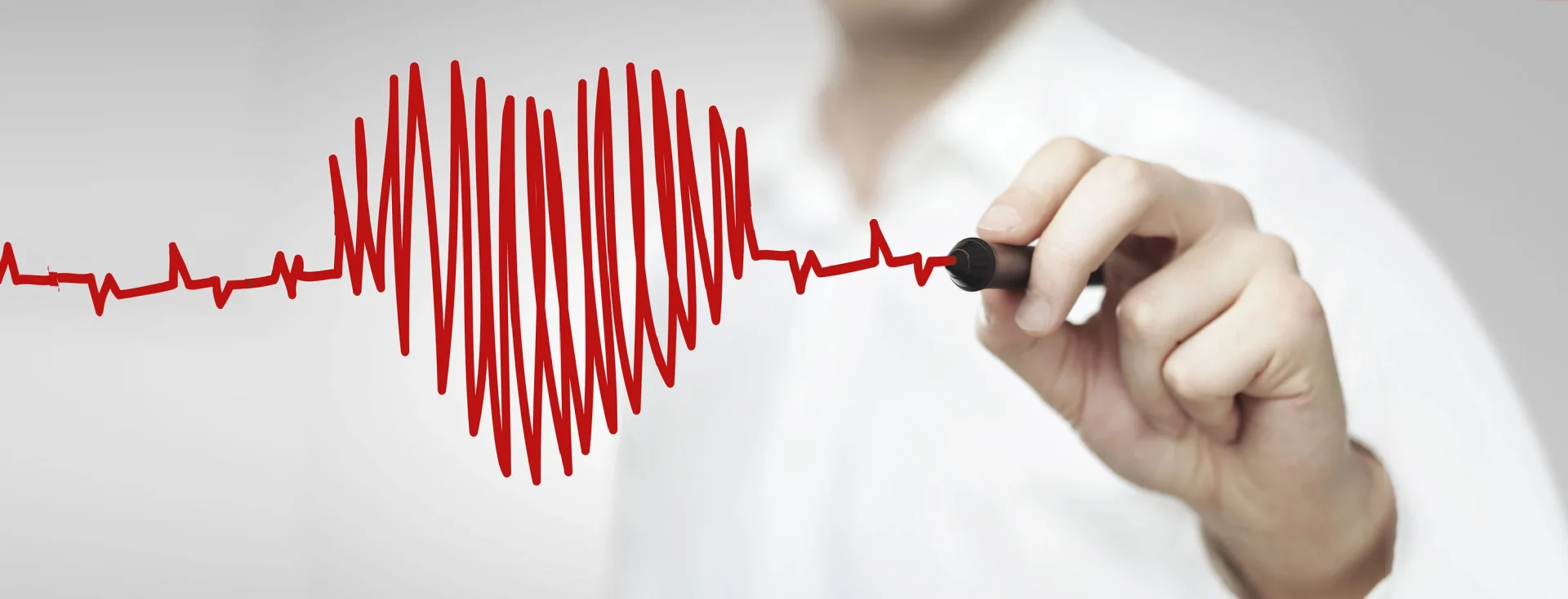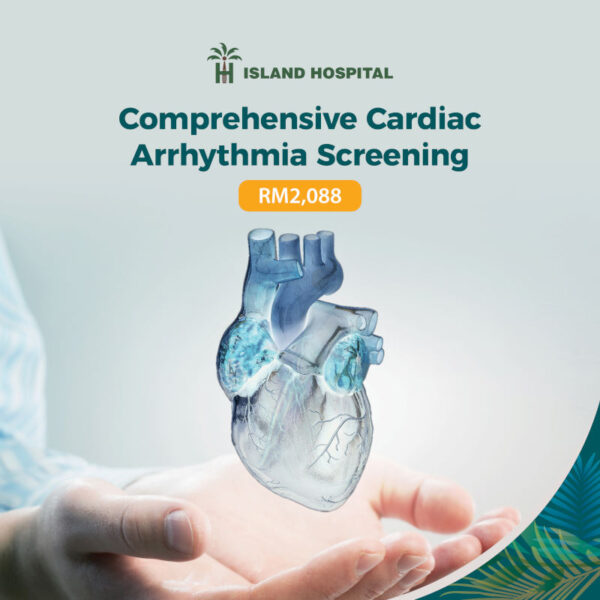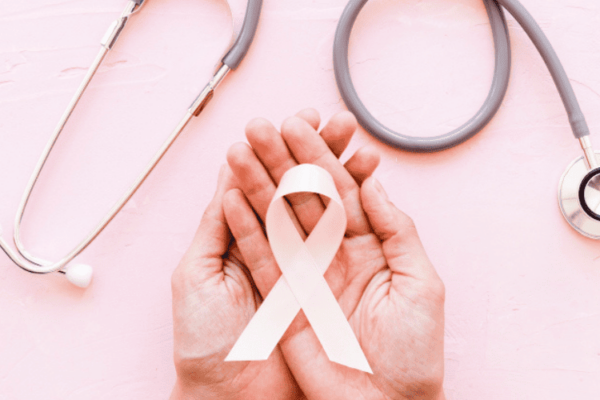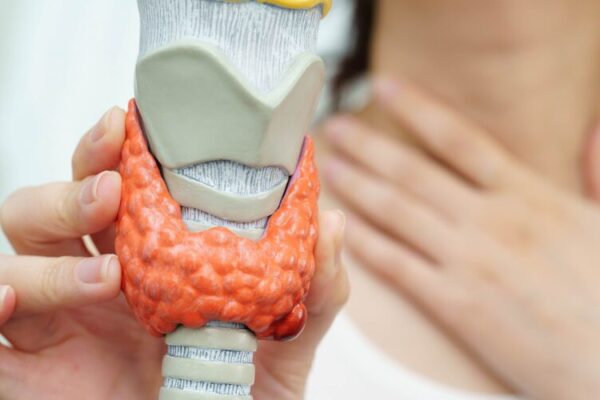
24 Sep Heart Attack Warning Signs: How to Spot Them Early
Heart Attack Warning Signs: How to Spot Them Early
By Island Hospital | January 20, 2025 11:05:43 AM
You are sweating bullets and need help to get up just two flights of stairs. You have no idea what is going on. However, you thought you were healthy and in great shape.
So, you ask yourself, “What just happened?!”
If you do not know the answer, you are not alone. Many people feel scared, confused and overwhelmed after a heart attack, and it is no surprise. You experienced a life-changing event.
Although a heart attack is a frightening event, if you learn the signs of a heart attack and the steps to be taken, you can save a life—perhaps even your own.
Understanding a Heart Attack
A heart attack, medically known as a myocardial infarction — which means “death of heart muscle” – is one of the most common and severe types of cardiovascular disease (CVD).
CVD is a broad term that encompasses various conditions affecting the heart and blood vessels, with heart attacks being a leading cause of morbidity and mortality worldwide.
Heart attack occurs when the blood flow to the heart is significantly reduced or completely blocked, depriving the heart muscle of oxygen.
This is typically caused by a blockage due to plaque buildup in the coronary arteries, preventing adequate blood supply.
The affected heart muscle cannot regenerate or be repaired, and heart attacks can also damage heart valves, leading to leaks. If not treated promptly, the disruption in blood flow causes irreversible damage, with studies showing that 85% of heart damage occurs within the first two hours of a heart attack.
CVD is the world’s leading cause of death, accounting for nearly one-third of all fatalities. On a regional scale, Malaysia has consistently experienced high mortality rates from this disease over the past decade. Despite its severity, heart attacks are treatable when recognised and addressed quickly, offering hope for better outcomes with timely intervention.
Hope to expand your knowledge on heart diseases? This article on knowing the characteristics of heart disease has all the details you need!
Early Signs of a Heart Attack
Recognising the early signs of a heart attack is crucial for seeking timely medical attention and potentially saving lives. While symptoms may vary between individuals, certain warning signs are commonly associated with an impending heart attack.
These symptoms often appear hours, days, or weeks before the event:
- Chest Discomfort: You would feel pressure, tightness, squeezing, or pain in the middle of your chest or spreading across it. This discomfort can last several minutes or come and go intermittently.
- Shortness of Breath: Shortness of breath or trouble breathing can occur with or without chest discomfort. It may feel like you’re struggling to take a deep breath or gasping for air.
- Pain in Other Parts of the body: You would feel pain in areas such as your arms (usually the left), back, neck, jaw, or stomach.
- Nausea, Vomiting and Indigestion: Often mistaken for less serious issues, such as acid reflux.
- Sweating: A sudden breakout in sweating or cold sweat without obvious physical exertion accompanied by a sense of unease.
- Fatigue: You would feel unusually tired or weak.
- Dizziness and lightheadedness: A sensation of faintness or unsteadiness can occur.
- Heart Palpitation: You would experience sensations of the heart beating rapidly, irregularly, or more forcefully than usual.
Are Heart Attacks in Women Different?
In comparison to men, women often experience heart attacks differently, with atypical symptoms that can be more subtle and difficult to recognise.
While men typically report the classic symptom of chest pain or discomfort, women may not experience these hallmark signs.
When to Seek Professional Help?
Call 999 or your local emergency service immediately—within 5 minutes—if you or someone you know shows symptoms of a heart attack.
Acting within the golden hour—the first hour after symptoms appear—can greatly improve survival rates and reduce the risk of lasting heart damage.
What Causes a Heart Attack?
Here are several reasons why a heart attack occurs:
1. Coronary artery disease (CAD)
CAD is the leading cause of heart attacks, occurring when plaques in the coronary arteries rupture. These plaques consist of fatty deposits, cholesterol, and other substances. When a plaque ruptures, it triggers the formation of a blood clot that obstructs blood flow.
2. Coronary artery spasm
Also known as Prinzmetal’s angina, vasospastic angina, or variant angina, this condition involves a sudden, temporary tightening or spasm of the coronary arteries that restricts blood flow.
These spasms can occur even in people without coronary artery disease (CAD), though they are often associated with CAD-related issues like cholesterol buildup or artery hardening caused by smoking, drug use (such as cocaine), extreme stress or other risk factors.
3. Blood clot
Blood clots can form when a plaque ruptures in the coronary artery, completely blocking blood flow and oxygen to the heart, which can damage and kill heart muscle cells.
4. Atherosclerosis
Atherosclerosis is a long-term condition in which arteries gradually harden and narrow due to plaque buildup. While the exact cause isn’t fully understood, it is believed to start with inflammation and the gradual accumulation of plaque on the inner artery walls.
This process restricts blood flow and reduces oxygen supply to vital organs and extremities, increasing the risk of plaque rupture, artery blockage, and heart attacks.
5. Spontaneous coronary artery dissection (SCAD)
SCAD is a rare and life-threatening condition where a tear forms in the coronary artery wall, restricting blood flow. This condition is more common in young, healthy women, particularly during pregnancy or postpartum.
Risk factors
Here are a few factors which increase your risk of a heart attack:
- Smoking: Damages blood vessels and accelerates the risk of blood clots.
- High Blood Pressure and High Cholesterol: Increase stress on the arteries and lead to atherosclerosis.
- Diabetes and Obesity: Double the risk of developing CAD and heart attacks.
- Family History: Genetic predisposition to heart disease.
“I can’t have heart disease if I have no risk factors.” Not so fast. Hidden heart risks lurk beyond diabetes and smoking – from your waistline to your daily routine. Learn more myths in our article on 12 Things I Thought I Knew About Heart Disease.
Diagnosis of Heart Attack
Once you have arrived at the hospital, doctors will perform a number of tests to determine if you’re having a heart attack or if you’ve already had one.
1. Electrocardiogram (EKG)
The first and most common test is often done within minutes of arrival, providing immediate information about heart performance. This quick test checks your heart’s electrical activity for abnormal rhythms and patterns to indicate a heart attack.
2. Blood tests
Used to detect heart muscle damage by measuring specific enzymes or proteins, such as troponin and creatine kinase (CK-MB), released into the bloodstream during a heart attack. Blood tests are typically repeated to monitor changes.
3. Medical history and physical examination
Doctors will review your medical history and perform a physical examination, including checking your blood pressure, heart rhythm, and heart rate, to identify risk factors such as previous heart issues, high blood pressure, diabetes, or lifestyle habits.
4. Heart imaging test
- Chest X-Ray: Assess the heart size and check fluid in the lungs or other complications.
- Echocardiogram: Uses sound waves to create images of the heart, showing surrounding areas of reduced blood flow or damage.
- Coronary Angiography: A specialised X-ray that uses dye and a catheter to visualise blockages in the coronary arteries.
Treatment of Heart Attack
The primary goals of heart attack treatment are to save lives, preserve heart function, and improve long-term outcomes by addressing the immediate emergency and underlying risk factors.
Emergency treatments
- Cardiopulmonary Resuscitation (CPR): CPR is a first-aid procedure used when the heart stops to maintain circulation and deliver oxygen to vital organs until professional medical treatment can restore normal heart function.
- Defibrillation: A procedure that uses electric shock to restore a normal heart rhythm if the heart is in an abnormal rhythm, such as ventricular fibrillation.
Immediate medical interventions
- Angioplasty and Stenting: A procedure to open blocked coronary arteries using a balloon and a stent to restore blood flow.
- Thrombolytic Therapy: Also known as clot busters, used to dissolve blood clots blocking the coronary arteries.
- Coronary Artery Bypass Grafting (CABG): Commonly known as bypass surgery, it is a procedure used to treat severe coronary artery blockages. It involves using blood vessels from the chest, arm, or leg to create a detour around blocked arteries, restoring blood flow to the heart muscle.
Medications
- Aspirin: Prevents blood clots from worsening by thinning the blood.
- Nitroglycerin: Relieves chest pain by dilating blood vessels and improving blood flow.
- Beta-Blockers: Reduces heart rate and blood pressure to decrease the heart’s oxygen demand.
- Angiotensin-converting enzyme (ACE) inhibitors: Helps relax blood vessels and reduce strain on the heart.
Rehabilitation and long-term care
In Malaysia, heart attack patients and their families have access to a wide range of organisations and support groups dedicated to their recovery journey.
- Cardiac rehabilitation: A supervised program combining exercise, education, and lifestyle changes to strengthen the heart and reduce the risk of future events.
- Lifestyle changes: Quit smoking, eat a heart-healthy diet, exercise regularly, and manage stress.
Support groups
- #BreakTheHeartAche
- MySTEMI Foundation
- Mended Heart Support Group
- IJN Foundation
- National Heart Association of Malaysia
- The Heart Foundation of Malaysia
Preventive Strategies for High-Risk Individuals
For individuals at high risk of heart attacks, adopting preventive strategies is crucial to reduce the likelihood of cardiovascular events.
1. Managing underlying health conditions
- High blood pressure: Control hypertension by regularly monitoring your blood pressure, taking prescribed medications, and following a low-sodium diet by reducing salt intake.
- Diabetes: Maintain healthy blood sugar levels by following a balanced diet, exercising regularly, and taking prescribed medication as directed.
- High cholesterol: Practice a heart-healthy diet by reducing foods high in LDL (bad cholesterol) and increasing those that boost HDL (good cholesterol). When necessary, take medications like statins to manage cholesterol levels effectively.
2. Adopt a heart-healthy diet
Focus on a diet rich in whole foods, such as fruits, vegetables, whole grains, lean proteins, and healthy fats like omega-3s. To maintain a healthy weight and protect your heart, limit saturated and trans fats, and avoid processed foods, added sugars and excess calories that contribute to plaque buildup in the arteries.
3. Engage in regular physical activity
Incorporating aerobic exercise and resistance training into a routine is highly recommended for maintaining cardiovascular health and overall fitness. Strive for at least 150 minutes of moderate-intensity aerobic activity or 75 minutes of vigorous exercise weekly, plus strength training twice a week.
4. Quit smoking and limit alcohol
Smoking takes a heavy toll on your heart, but quitting reverses the damage by improving oxygen levels and allowing your body to start healing right away.
Similarly, excessive alcohol consumption can raise triglycerides and cause irregular heartbeats, putting extra strain on your heart. We recommend stopping this habit entirely. However, if you do drink, limit yourself to one drink a day if you’re a woman and two if you’re a man.
5. Manage stress
Manage stress effectively by staying active, connecting with loved ones, and incorporating relaxation techniques into your daily routine. Try mindfulness practices like yoga, meditation, or deep breathing to help reduce stress levels. Prioritise 7-9 hours of quality sleep each night to support heart health and overall well-being.
6. Get regular health checkups
Keep your heart in check with regular screenings to monitor your blood pressure, cholesterol, and blood sugar levels. These silent risk factors can damage your heart and blood vessels without you even knowing.
Regular screenings help detect potential heart risks early, allowing you and your doctor to develop a personalised plan to protect your heart health and prevent future problems.
7. Understand the role of caregivers and family members
Caregivers and family members are vital in providing emotional support and assisting with lifestyle changes, such as preparing heart-healthy meals, encouraging physical activity, and ensuring adherence to medical advice.
A study highlights the significant financial and health burdens associated with cardiovascular conditions. Caregivers can help reduce this burden by monitoring symptoms and ensuring timely medical checkups, effectively managing the condition and minimising complications.
Don’t Let a Heart Attack Define Your Future
A heart attack can be life-changing, but with the right care and support, you can recover and continue living a healthy, fulfilling life.
Our Cardiology Department at Island Hospital is committed to helping you regain control over your heart health. With our expert medical care and tailored coping strategies, we provide comprehensive care, from diagnosis to treatment and ongoing management.
Our commitment to excellence has earned us local and worldwide recognition:
- A finalist for Malaysia’s Flagship Medical Tourism Hospital Programme
- A place on Newsweek’s lists of World’s Best Hospitals 2024
- A place Best Specialised Hospitals Asia Pacific 2024 (Cardiology).
Don’t let a heart attack define you. Let us be part of your recovery—because your heart deserves the best care.
Schedule a consultation today and discover how we can support your heart health journey.
Don’t Wait Until It’s Too Late – Take Charge of Your Heart Health Today!

Every heartbeat matters, and our Comprehensive Cardiac Arrhythmia Screening at Island Hospital is designed to provide an in-depth assessment of your heart’s rhythm and health.
For RM2,088, Island Hospital offers expert care and advanced diagnostics to help you stay on top of your heart health.
What’s Included in Your Screening Experience:
✔ Electrocardiogram (ECG)
✔ 24-hour Holter monitoring to track heart rhythm
✔ Echocardiogram for detailed heart imaging
✔ Blood tests to assess key heart health indicators
✔ Consultation with a cardiologist to review your results
Whether it’s for prevention or early detection, this package offers you the insights you need to take proactive steps for your health.
FAQ
Heart attack vs Cardiac arrest?
Although heart attack and cardiac arrest may share similar symptoms and are often used interchangeably, they are distinct conditions with different causes and treatments. While a heart attack can lead to cardiac arrest, each requires a unique approach to treatment.
| Aspect | ||
|---|---|---|
| Cause | Blocked blood flow to the heart | Electrical malfunction in the heart |
| Symptoms | Chest pain, shortness of breath | Sudden collapse, no pulse or breathing |
| Heart function | Heart continues to beat | Heart suddenly stops beating |
| Immediate response | Call 999, stay calm | Call 999, perform CPR and use an AED |
How do I deal with or survive a heart attack when alone?
If you suspect you’re having a heart attack and are alone, take these steps immediately:
- Call 9-9-9 or your local call emergency service.
- Chew on aspirin if available or not allergic
- Stay calm and rest
- Unlock the door for the paramedics to access
In the meantime, refrain from taking any of these actions.
- Do not attempt to drive to hospital; wait for emergency services
- Do not perform cough CPR
- Avoid food and drink
How do I know if my chest pain is heart-related?
Chest pain can be caused by various conditions, some of which are serious and heart-related, while others may be less concerning.
Signs that chest pain may be heart-related
- Location and sensation
- Duration
- Accompanying symptoms: Shortness of breath, cold sweats, nausea, lightheadedness, or fatigue.
- Triggered by Physical Activity
- Unresponsive to Antacids:
Signs that chest pain is unlikely heart-related
- Burning sensation rising from the stomach to the throat (Heartburn or Gastroesophageal reflux disease (GERD))
- Pain localised to a specific spot that increases with pressure (musculoskeletal)
- Sharp or stabbing pain that worsens with breathing or movement (muscle strain or lung-related issues)
Can I have a heart attack without knowing it?
Yes, it’s possible to have a heart attack without realising it. This is known as a silent heart attack (silent myocardial infarction). Unlike typical heart attacks with obvious symptoms such as chest pain or shortness of breath, a silent heart attack may have mild, vague, or no noticeable symptoms.
Silent heart attacks are more common in:
- Women: Symptoms can be subtler compared to men.
- Older Adults: Especially those with other health conditions.
- People with Diabetes: Nerve damage from diabetes can dull pain perception.
- Individuals with High Blood Pressure or Cholesterol: These conditions increase risk but may not cause noticeable symptoms.







